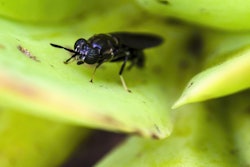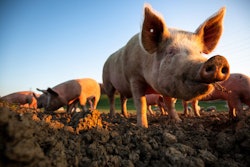Restructuring integrates marketing, sustainability and digital teams into one unit
Skretting ARC has been renamed and restructured into a complete and multi-functional unit incorporating the global marketing, sustainability and digital teams. The new unit is called Skretting Aquaculture Innovation (AI) and integrates all aspects of innovation from basic to applied research, to product development to digital innovation and sustainability.
“What we have created is a completely dynamic approach towards innovation, where we don’t focus only on one aspect of innovation, for example ingredients, health, digital or only sustainability,” said Alex Obach, Skretting’s innovation director. “We have put all of this together into an integrated and agile value center, with our clients’ current and future needs at the core.”
The new unit remains headquartered in Stavanger, Norway, and comprises more than 150 experts across the functional areas, closely collaborating with colleagues around the world. With novel technologies in the Skretting bubble combined with future solutions from Nutreco Exploration (NutEx) set to deliver exclusive ingredients through phytotechnology, biotechnologies and physical chemistry, combined with increasing opportunities through Nutreco’s breakthrough investment arm NuFrontiers, Skretting AI is at the forefront of cutting-edge innovation.
“We operate in a specific area of the aquaculture value chain, with great diversity in our clients, the species farmed and the ingredients available. However, there are innovation areas that add value across the board, including sustainability, life start, health, ingredients and more,” Obach said.
Sustainable seafood, conscious consumers
The innovation areas of Skretting AI are tightly matched with the global rise in seafood consumption, combined with the rise in conscious consumers. The pandemic has highlighted the need for sustainable, healthy and local food and there is an expectation that companies will operate in a conscious, transparent and ethical way.
“A Skretting-fed fish or shrimp matches these requirements,” says Obach. “We contribute to more than 21 million seafood meals every day – a big responsibility. We innovate to incorporate the needs of both our clients and the wider society.
“We believe that the biggest challenges facing aquaculture today are ingredients (availability, sustainability and logistics) health challenges and circularity. We have a clear roadmap to address these challenges, and a dynamic and dedicated team making it happen. We have a dual role to support the business with the challenges of today and our longer-term responsibility to bring innovative solutions for tomorrow to drive aquaculture into the future,” Obach said.











